Disclaimer: The information provided on this blog does not, and is not intended to, constitute legal advice.
Understanding Thermal Hunting Regulations
Sightmark has done its due diligence and has reached out to the Fish and Wildlife representatives from all 50 states to determine the legality of thermal optics for hunting within their jurisdictions so that anyone who is unsure about using our new, powerful Wraith Thermal digital thermal riflescope on a night hunt can rest easy knowing that it can be used without legal repercussions.
The laws on thermal optics vary by state. Before trying your hand at night hunting with your new thermal device, it would be good to check with your local Game Warden before you reserve a date on the calendar for a hunting trip.
It should be noted, however, that it is currently illegal nationwide to hunt any game animal at night—this includes deer, turkey, elk and moose. The list below provides general details on the use of thermal devices for hunting non-game animals and does not go in depth into what animals can be hunted. Please check your state regulations for the most up-to-date information.
Recommended Thermal Riflescopes from Sightmark
State-by-State Thermal Hunting Legality Overview
Alabama – LEGAL; Hunters must pay for a night hunting license. Thermal encouraged for hogs and coyotes.
Alaska – ILLEGAL; Forward-looking infrared, airborne devices, and wireless thermal spotting prohibited.
Arizona – ILLEGAL; Thermal and other electronic night optics banned for hunting.
Arkansas – LEGAL; Legal for feral hogs and raccoons (with dogs).
California – ILLEGAL; Thermal devices mounted to firearms are prohibited.
Colorado – ILLEGAL; No thermal optics for hunting outside legal daylight hours.
Connecticut – LEGAL; Seasonal use allowed for raccoons and possums.
Delaware – LEGAL; No artificial light allowed; thermal must not emit light.
Florida – LEGAL; Local area dependent, allowed for hogs and coyotes.
Georgia – LEGAL; Requires a free permit for night hunting. Coyote hunting is permitted from March to October, but hog hunting is year-round on private land.
Hawaii – ILLEGAL; No night hunting allowed under any circumstances.
Idaho – LEGAL; Allowed as long as no visible light is emitted.
Illinois – LEGAL; Permitted for select species (e.g., coyotes, skunks) during specific seasons and regions.
Indiana – LEGAL; Legal with visible safety light required for nighttime hunting.
Iowa – ILLEGAL; Thermal prohibited, but officials are reviewing the possibility of authorization.
Kansas – LEGAL; Requires night vision permit; legal for coyotes September 1 – March 31.
Kentucky – LEGAL; Thermal allowed for coyotes with shotguns Dec 1–May 31 only.
Louisiana – LEGAL; Permitted for feral hogs and coyotes.
Maine – LEGAL; Limited to raccoons and coyotes under certain conditions and dates.
Maryland – LEGAL; Must not emit visible light. Limited to specific species during open season.
Massachusetts – LEGAL; Legal as long as device emits no visible light. Night hunting ends at midnight.
Michigan – ILLEGAL; Thermal prohibited.
Minnesota – ILLEGAL; Night hunting for furbearers is permitted with artificial lights, but thermal is prohibited.
Mississippi – LEGAL; Thermal allowed for predator species on private land.
Missouri – LEGAL; Legal for coyote hunting from Feb 1 to March 31.
Montana – LEGAL; Allowed for predators and animals not regulated as game.
Nebraska – MIXED; Permitted on private land with written landowner permission. Public land night hunting is banned.
Nevada – ILLEGAL; No night hunting allowed.
New Hampshire – LEGAL; No restrictions on thermal hunting.
New Jersey – LEGAL; Thermal optics allowed without restriction.
New Mexico – ILLEGAL; Night hunting is not permitted statewide.
New York – LEGAL; Thermal legal for nighttime hunting of select species (e.g., coyotes, foxes).
North Carolina – LEGAL; No restrictions on thermal use.
North Dakota – LEGAL; Allowed for coyote and fox hunting.
Ohio – LEGAL; Permitted during legal night hunting seasons for multiple non-game species.
Oklahoma – LEGAL; Approved for hogs and coyotes.
Oregon – ILLEGAL; Thermal and night vision prohibited.
Pennsylvania – LEGAL; Thermal optics allowed with no restrictions.
Rhode Island – LEGAL; Legal only for raccoons. Firearm restrictions apply.
South Carolina – LEGAL; Legal for hogs, coyotes, and armadillos. The South Carolina DNR must be notified and the property registered before a night hunt, which can be done here.
South Dakota – LEGAL; Allowed on private land only, with firearm caliber restrictions.
Tennessee – MIXED; Generally banned, but with a special landowner exemption: landowners with documented crop damage may obtain authorisation to hunt coyotes or feral hogs at night using thermal devices.
Texas – LEGAL; No restrictions on thermal usage.
Utah – LEGAL; Thermal/night vision allowed statewide.
Vermont – LEGAL; Legal as long as device emits no infrared light.
Virginia – LEGAL; Approved for nighttime hunting of designated predator species.
Washington – LEGAL; Legal for coyote hunting outside of big game seasons.
West Virginia – LEGAL; Allowed for predator species such as coyotes and raccoons.
Wisconsin – ILLEGAL; Thermal prohibited.
Wyoming – LEGAL; Legal for predator control with permission on public land.
Final Thoughts on Thermal Hunting Legality
While thermal technology opens up exciting opportunities for nighttime hunting, knowing your local regulations is essential. Not all states permit thermal for hunting, and even those that do may limit which species can be hunted or restrict usage by season or device type. When in doubt, contact your local wildlife department and always hunt responsibly.
Explore Sightmark’s thermal optics collection to equip yourself with legal, high-performance tools for your next nighttime hunt.
Frequently Asked Questions
Is it legal to use thermal riflescopes for hunting in the United States?
Thermal hunting laws differ from state to state. Many states allow thermal optics for hunting non-game animals like hogs and coyotes, while others completely ban their use. Always verify your local hunting regulations before heading out.
Can I hunt deer, elk, or other big game animals at night with a thermal scope?
No. It is illegal nationwide to hunt any game animals such as deer, elk, moose, or turkey at night, regardless of equipment type.
Which U.S. states ban the use of thermal optics for hunting?
As of the latest update, Alaska, Arizona, California, Colorado, Hawaii, Nevada, New Mexico, Oregon, and Tennessee prohibit the use of thermal optics for hunting activities.
Do thermal scopes produce visible light that could break night hunting laws?
Thermal scopes detect heat signatures and typically do not emit visible or infrared light. However, even without light emission, some states restrict their use entirely, so always check with local authorities.
What species are legal to hunt using thermal devices?
Most states allow thermal optics for hunting non-game species such as feral hogs, coyotes, raccoons, and other predators. Hunting game species at night is generally prohibited.
Do any states require special permits for thermal hunting?
Yes. For example, Kansas requires a night vision permit, and Indiana mandates the use of a visible safety light when hunting at night. Permit requirements vary depending on the state.
Is the Sightmark Wraith Thermal legal for use in hunting?
Yes, the Sightmark Wraith Thermal can be legally used in many states for predator or nuisance animal hunting. However, it’s essential to verify your specific state and species regulations before use.
Can thermal scopes be used on public land?
That depends on the state. For instance, Wyoming allows thermal devices for predator control on public land with proper permission, while other states limit them to private land use.
Are all thermal optics considered legal hunting equipment?
No. Some states restrict firearm-mounted optics or devices that emit any form of light, even if the thermal unit itself does not. Always ensure your setup complies with local hunting laws.
What should I do before scheduling a thermal night hunt?
Always contact your local Game Warden or wildlife department for the most current regulations. Laws are subject to change, and compliance helps prevent legal issues and ensures ethical hunting.


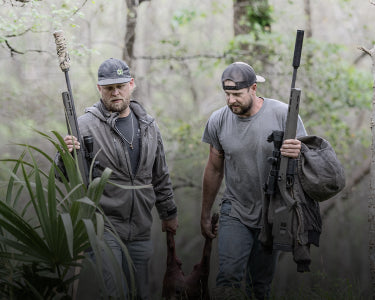
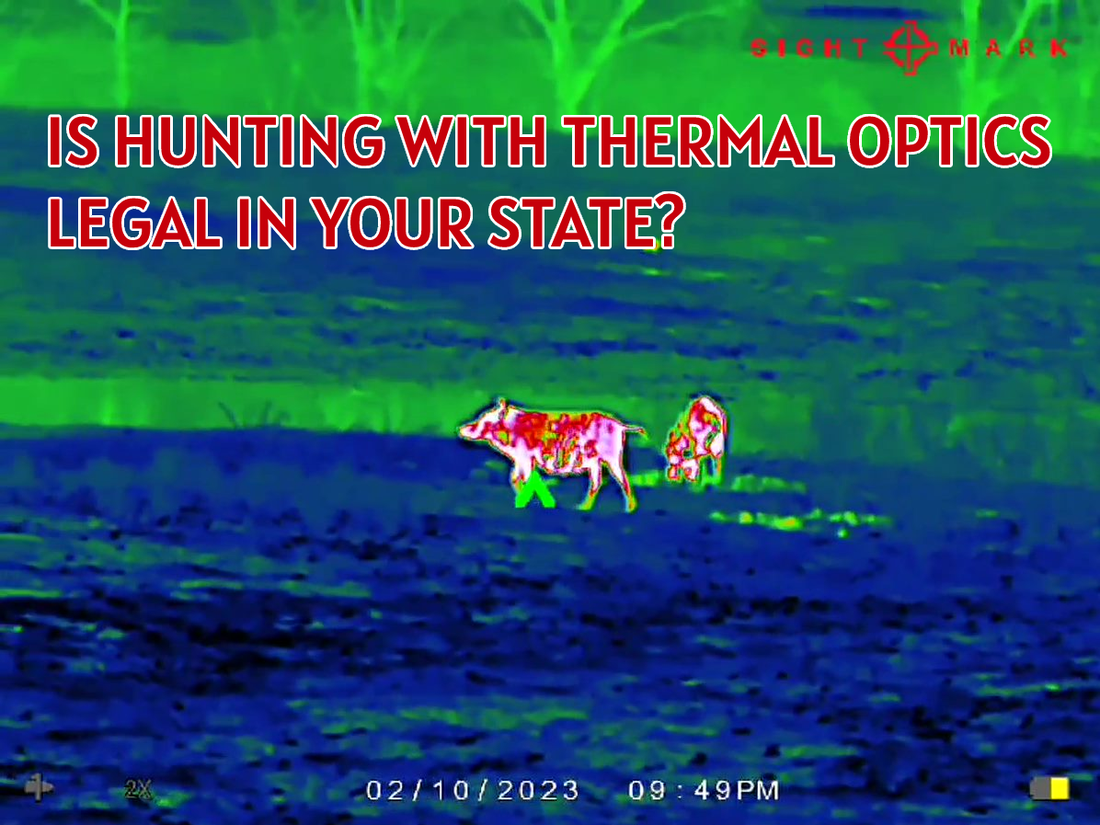
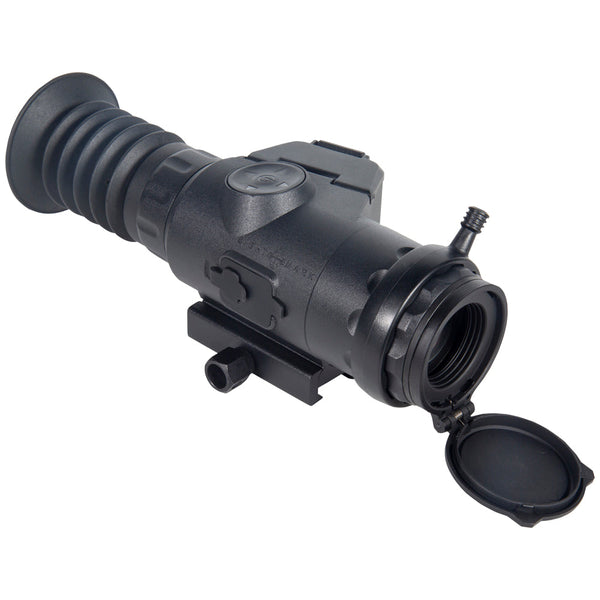
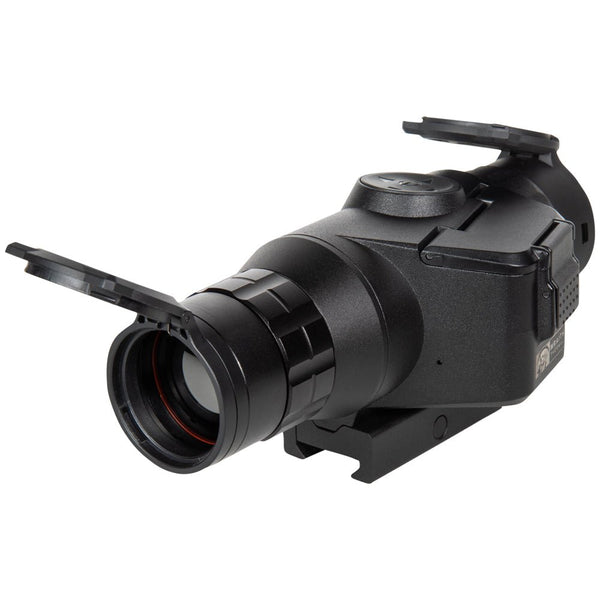
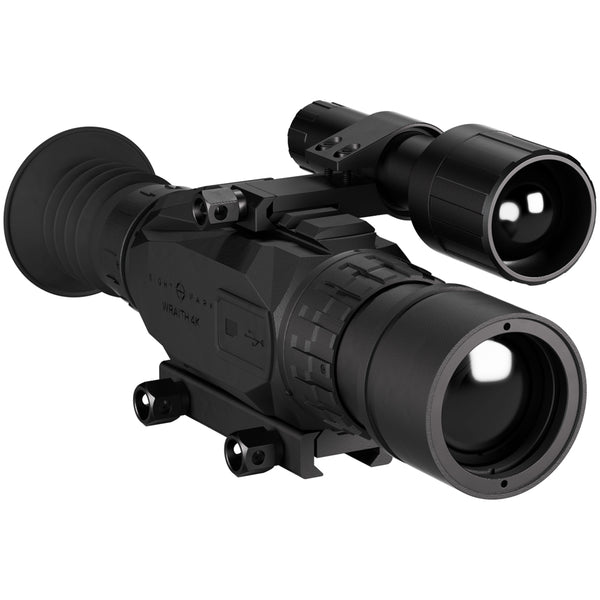

1 comment
In Washington it’s also legal to use thermal to hunt bobcat (set season, certain units only) and raccoon (set season).